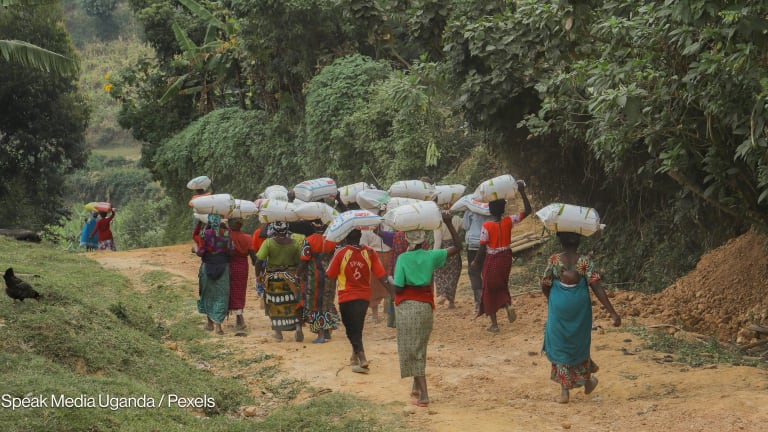
Two things will likely determine how much data a country creates, according to Microsoft President Brad Smith: the size of its population and the number of digital devices it has.
“The truth is, 20 years from now, Africa should probably be the continent that is creating some of the largest amounts of data in the world,” said Smith, who joined multilateral leaders and the president of Estonia at a launch event Wednesday for the World Bank’s latest “World Development Report.”
“The key will be to ensure that it not only serves economic development, but the broader public good,” Smith said.
Despite the frequent rhetoric around big data, less than 0.5% of official development assistance goes to support countries’ statistics capabilities, and most low- and middle-income countries are unable to fund even half of their national statistical plans, the report finds.
The key will be investing in basic digital infrastructure, said Ngozi Okonjo-Iweala, who was recently appointed head of the World Trade Organization.
“My interest is in partnering with [President] David [Malpass] at the World Bank, partnering with the regional development banks, to make sure this infrastructure is provided,” she said.
“A world in which we have inequality of access to use of data is not a good world,” she added.
Data concerns reopen debate over World Bank Doing Business rankings
The World Bank's decision to delay publication of its Doing Business report until it can investigate allegations of data "irregularities" has reopened the debate over whether the highly visible ranking system should exist at all.
The challenge: With the digital economy exploding and more data being produced than ever before, the bank’s latest report focuses on how to narrow that equity gap so that more countries can benefit from unprecedented amounts of information, while protecting the rights and safety of their populations.
A double-edged sword: Data is “indispensable” to global challenges such as reducing carbon emissions, which requires a standardized approach among countries, Smith said. But fewer than one-third of low-income countries have provisions for best-practice safeguards to govern how data is handled and used.








